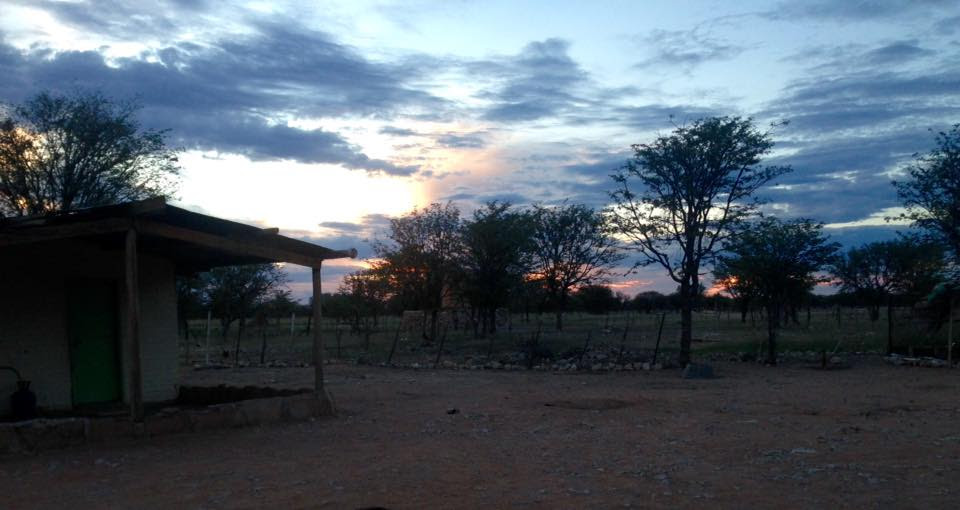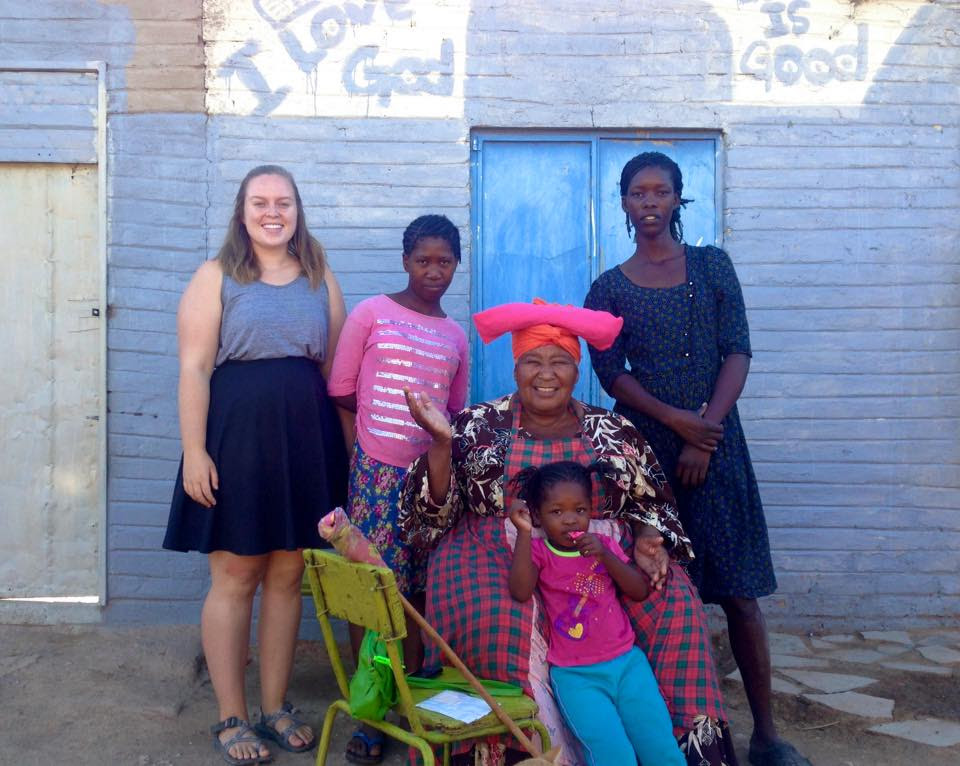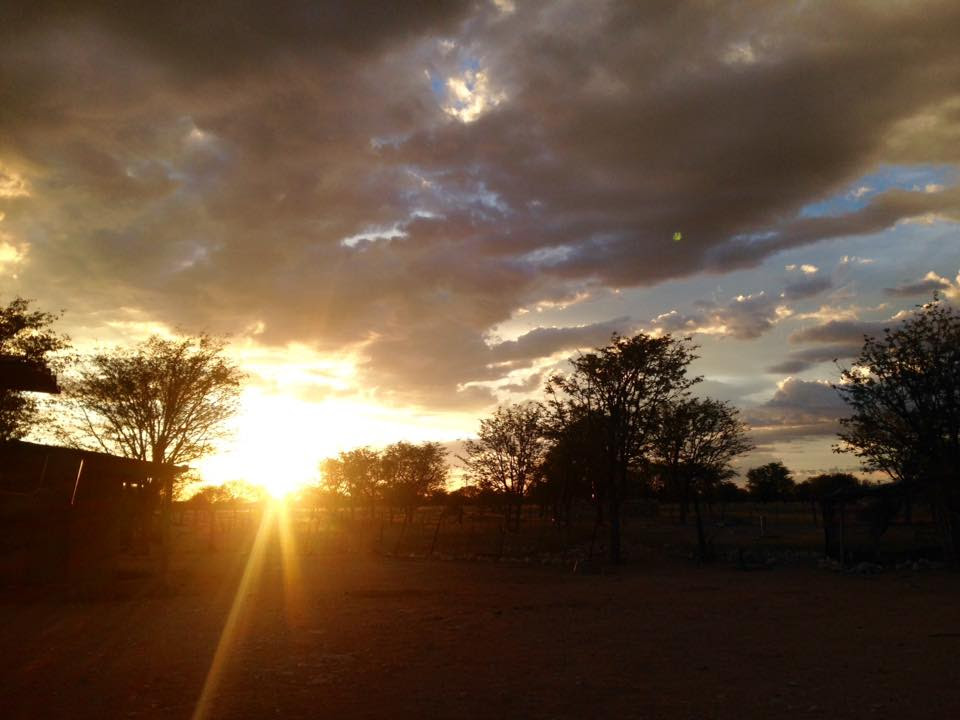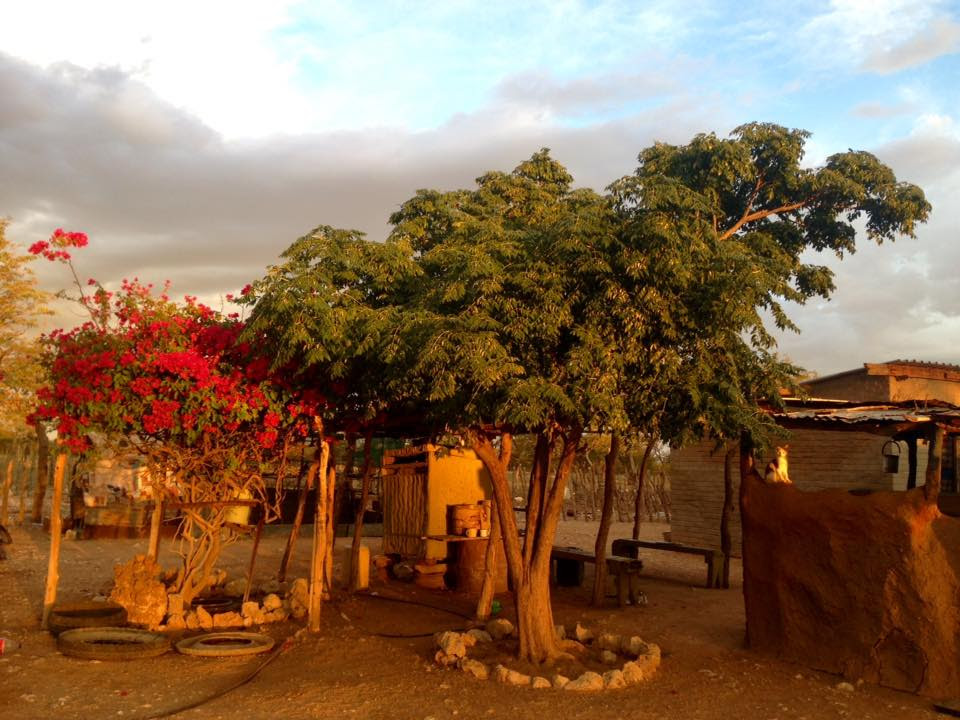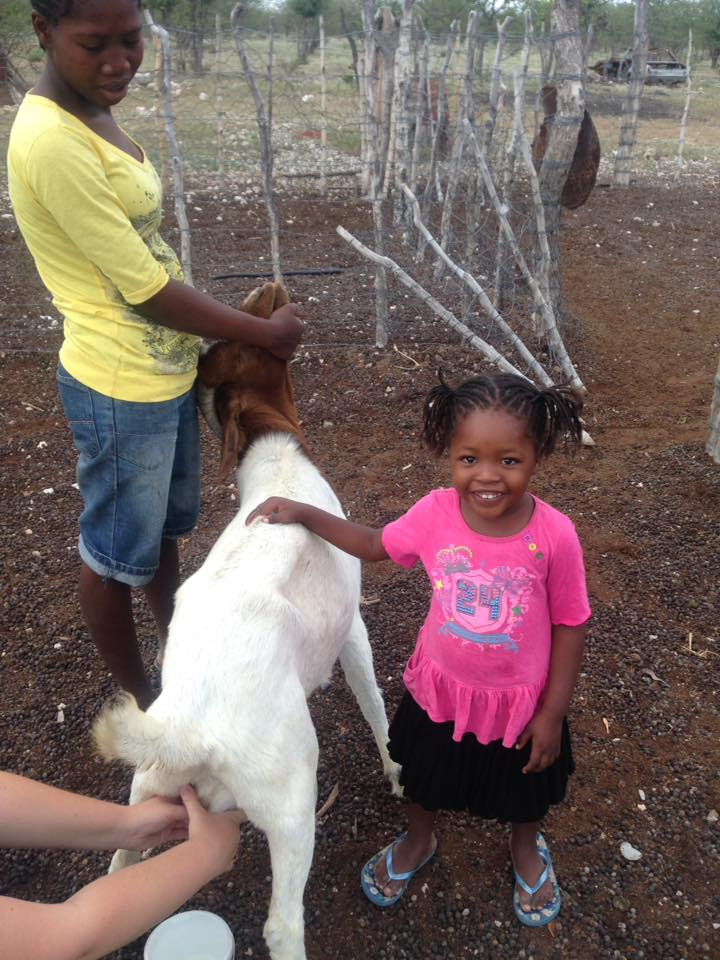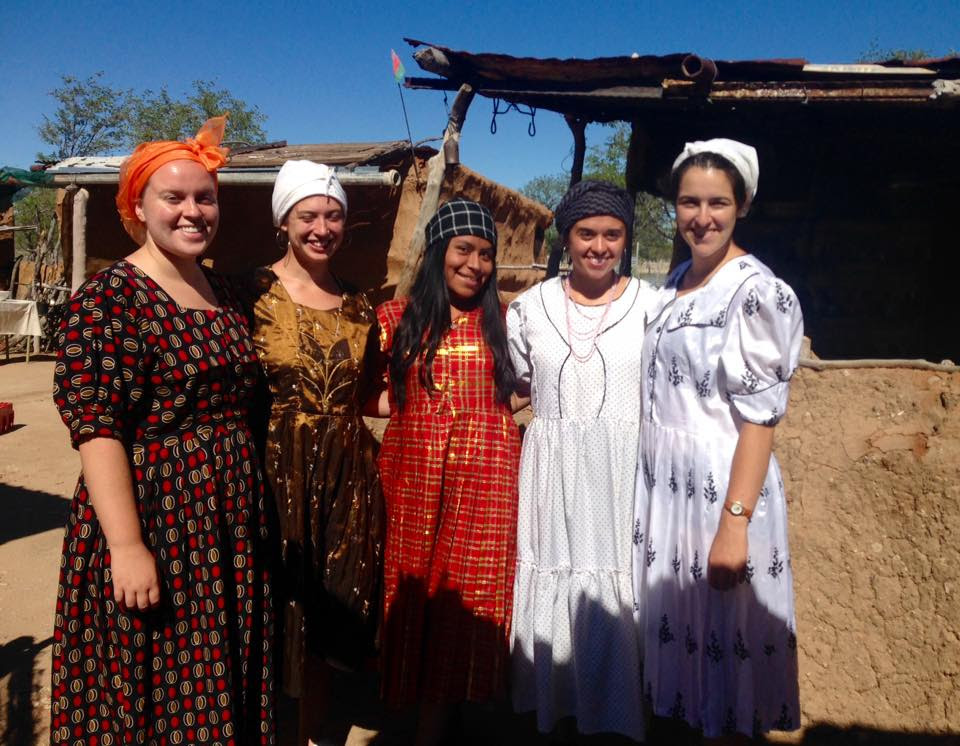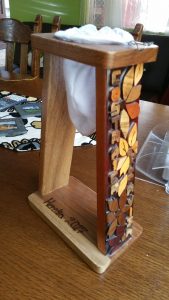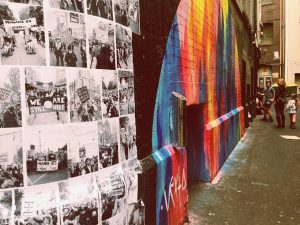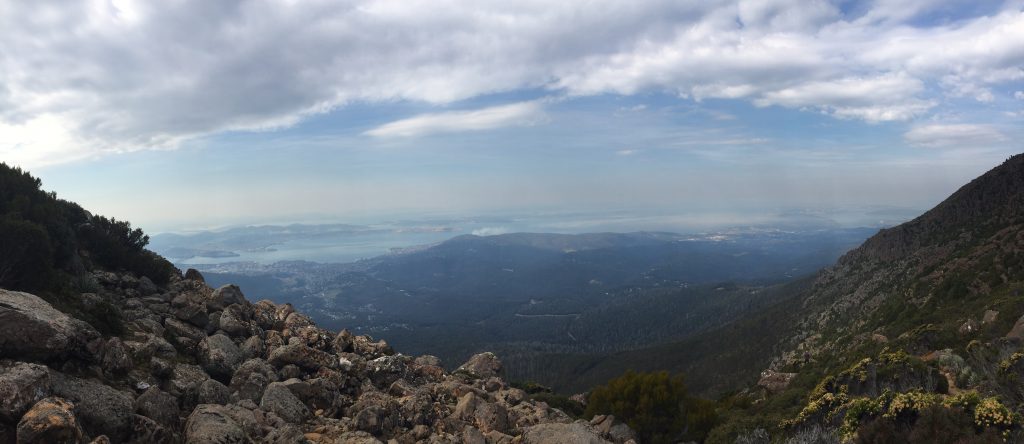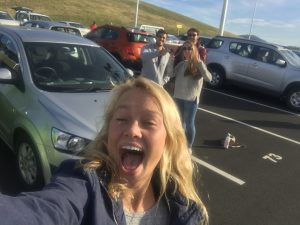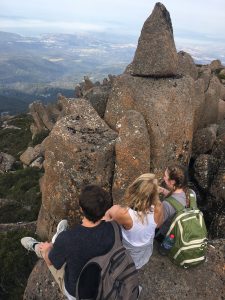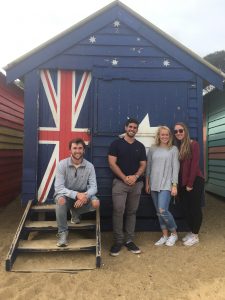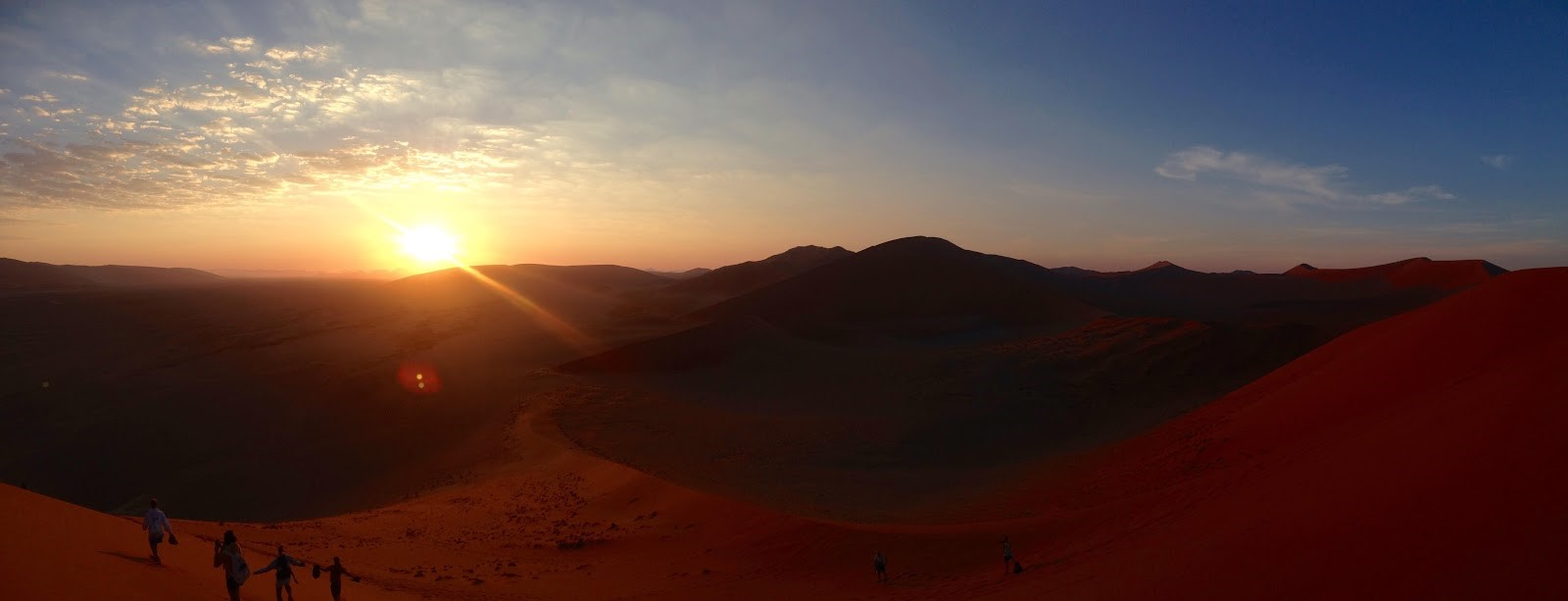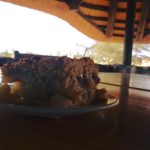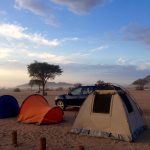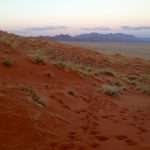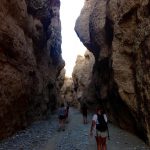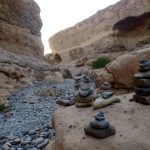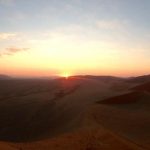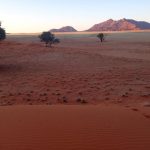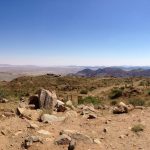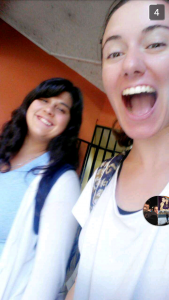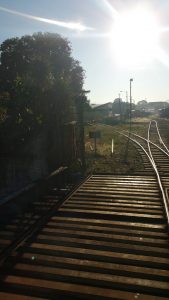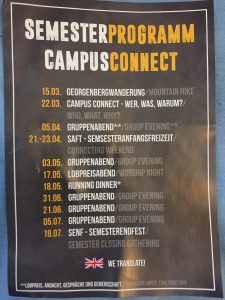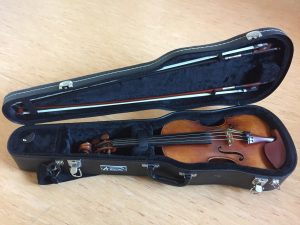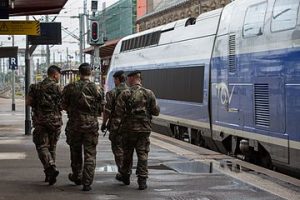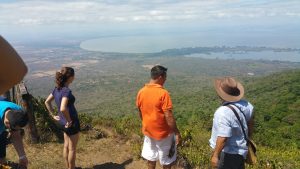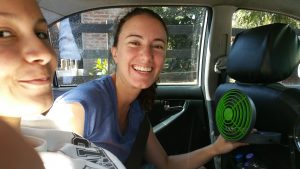Blogger: Katie Karstensen
Program: Windhoek, Namibia
I am incredibly grateful to my rural homestay family for welcoming me into their hearts and home for a week in Khorixas. My family consisted of only incredibly strong and empowering women. My grandma, or Ouma, was the Village Pastor, and I had two host sisters, one who had a three year old daughter. We also had many pets including five cats, one dog, three goats, one pig, doves, and chickens at our farm on Waterfal Post Three. My family came from the Herero tribe, and all spoke Herero and Damara on a daily basis, only my oldest host sister speaking English enough to translate most things for me. I was thankful my family treated as one of their own and allowed me to help with some daily tasks such as milking and herding the goats, hunting for wampani worms, serving Ouma food, and doing the dishes.
Though there were more differences than similarities in the lives we lead on a regular basis, being with a family reminded me a lot of my own home and family. Things that most reminded me of home were farm chores such as herding and feeding various types of animals, watering the garden(both their garden and my own having lots of sweet corn), being able to see a sky full of stars at night, and flat landscapes allowing you to view beautiful sunsets and the land going on for miles(though the flat landscape I’m used to is filled with corn instead of dirt and sand).
As my Ouma was the Village Pastor, religion was a large part of our daily routine. Ouma had no theological training through a certification program or through a university; she said she studied the bible everyday, which she did. Ouma said a prayer for us in the morning when we woke up to thank God for the day, for our meals to fill us, and a prayer in the evening for all of us before we went to sleep to keep us safe throughout the night. Her interpretation and preaching on the Bible came from a very literal interpretation of scripture. One afternoon, the other study abroad students being hosted on the same farm were brought over by their host siblings to our house, and they talked about their history and let us ask questions about their culture and beliefs. One point of confusion was Ouma’s belief of Jesus being white. She said in her bible there was a picture of Jesus depicting him as a white man, a very Westernized notion. From my interpretation of the conversation with Ouma, she took the Bible’s word as the whole truth directly from God, not as written by man. We held two different services while we were there. The first was in the evening at our farm sitting next to the campfire in rows of chairs, and Ouma sitting at the front. The message conveyed was meant solely for us, as it was us and a few host siblings in attendance. The service was spoken in Damara(a click language) and translated by our host siblings into English. Ouma reiterated how thankful she was to God for us being there. When they asked us our spiritual beliefs, it was not apparent they knew how to respond when one of the students said they grew up Jewish, but were happy to hear the rest of us grew up in Christian households. Ouma allowed time for us to ask questions, and she spent time later on in the week looking for scripture and asking me to look up the same scripture in an English bible so she could use scripture to answer other students questions later in the week. On Sunday, we also hosted a service. I enjoyed how personal the services were with such a small group of people, and it was reiterated for me how worship can be done everywhere, even sitting on chairs in a circle while chickens and cats are walking in between everyone’s legs. Ouma and my host sister practiced their faith more than during services, but were great examples of living out their faith through their actions.
The week as a whole for me was a very intense privilege check. At many times I felt like I was camping, and I felt comfortable. Then I did a lot of reflection on how my own family in the U.S. goes camping for fun often, leaving our luxuries at home for the weekend and enjoying ourselves. But the farm I stayed at in Khroixas as all the family has. I brought a few outfits to wear for the week, and my host sister rotated a few articles of clothing throughout the week as well. I had more articles of clothing I had left at the study abroad house, and even more clothes I left behind in the U.S. But the clothes my family wore were the only clothes they had. My house in the U.S. uses an unknown amount of electricity per day, and we depend on it very heavily, so much so we have a backup generator in case the power were ever to go out. My host family had a small machine they hooked up to a car battery, so they could plug the TV and their phone chargers in, and that was all the power they used. They’re content, and the lack of power usage is incredible for the harm they aren’t doing on the environment. There were many things I could think of that are a part of my daily life that would make their lives so much easier, but are not accessible to residents of Khorixas. Though much wasn’t accessible to them, it was exciting to see they were able to have a little electricity to keep up with politics, listen to music, and watch television (which is how my host sisters learned English, despite not going to school.) Their days are based around preparing meals, caring for the animals, and taking naps.
During a get together with all of the study abroad students and their siblings, and my Ouma, they told us about some of the history they had been a part of. They said they were thankful we were there to visit them as there was a time when black and white people were not allowed to be in one another’s company, or even on the same property. They said there is a big difference between now and then, as now black and white people are allowed to visit and come into one another’s homes and continually learn from each other. We were also there during a time that rained more than it had in years. Ouma talked about how everyone used to have much more cattle, but because there was no rain and no food, they lost most of what they had. With recent rain, plants began growing again, and there were small patches of greenery everywhere. Ouma is very hopeful her garden will be successful, so they can add more variety to their diet. It sounded like they receive cornmeal from the government for their main source of food. When I asked about the flag flying on the roof of one of the houses, my Ouma told me it was the Namibian flag, though it was the Swapo political party’s flag. When I asked what her political views were, she said, with her fist held in the air, that Swapo was the Namibian political party, and they were doing good for the people, and that is as far as she was willing to elaborate on the subject.
When I was by myself with my family, I felt included and enjoyed their company. During the last day we were together at the family party with everyone from Waterfal Post Three, we were made out to be the guests of honor. Our families dressed us in their traditional dresses and covered our heads with scarves, and felt proud to have us wear their clothing. We were served first out of everyone and had our own special table with a tablecloth, place mats, and a bowl of candy. Everyone else sat around in chairs and ate on plates out of their laps while the kids sat on the ground and ate with their hands out of a bucket. We asked to help prepare the food and were given minimal tasks to do. We had to ask again to do more. It was uncomfortable to be a guest of honor, but I could tell the families were proud to show us their best and serve us.
